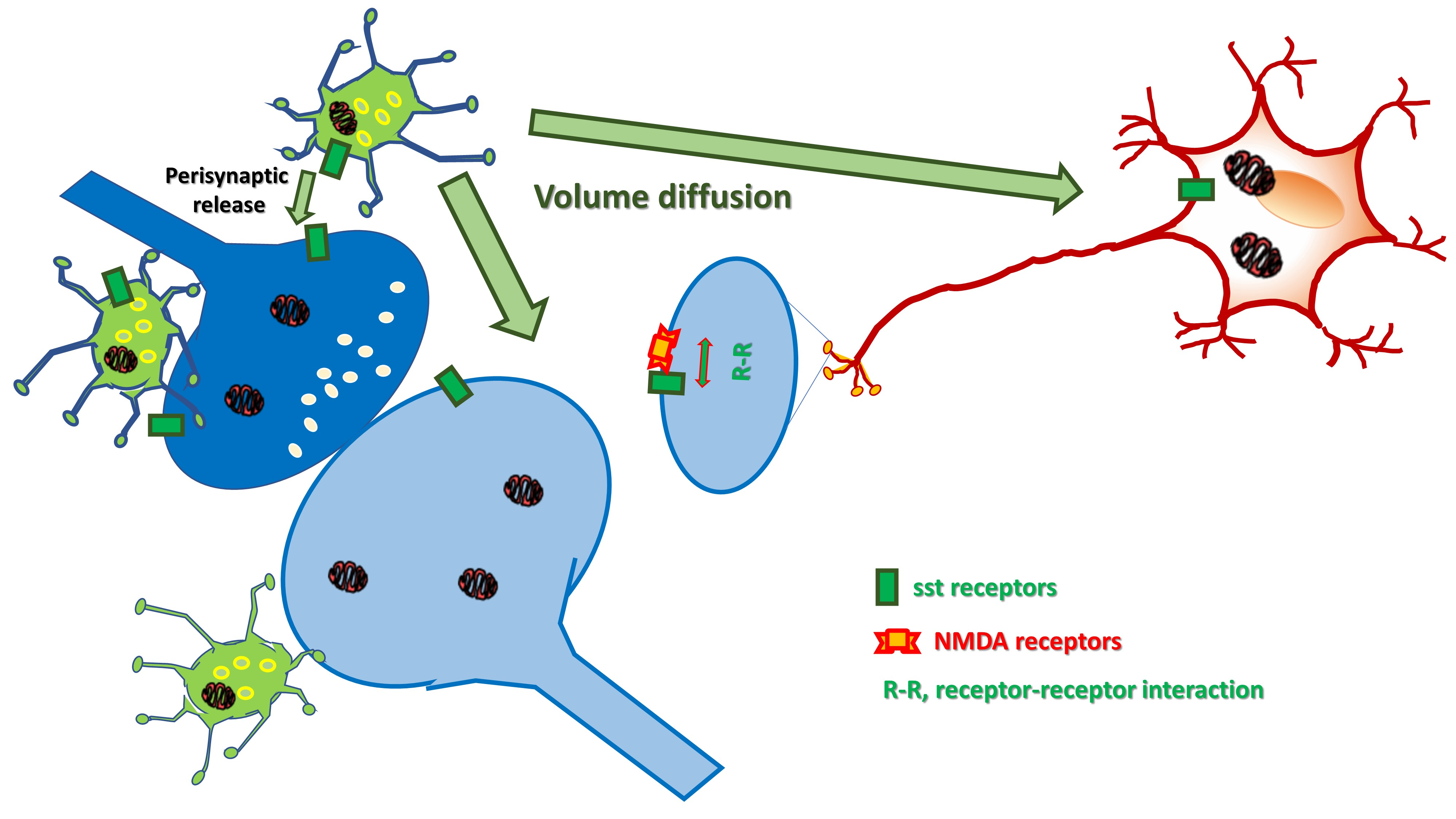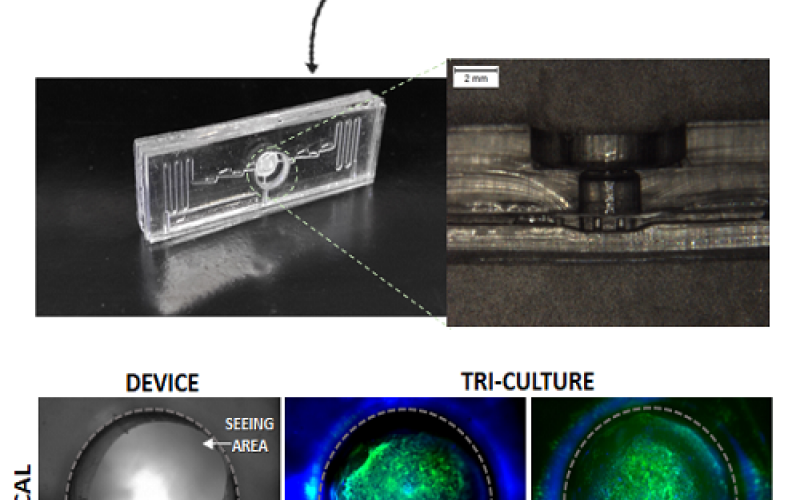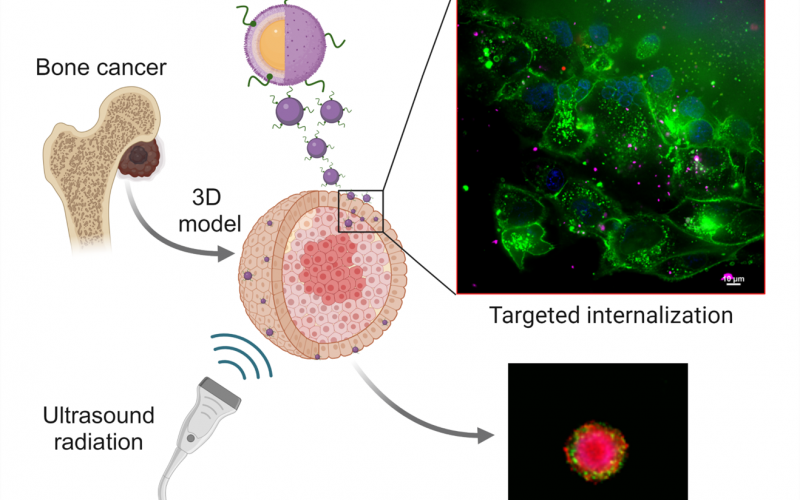- Centro Interuniversitario per la Promozione dei Principi delle 3R nella Didattica e nella Ricerca
Somatostatin, a Presynaptic Modulator of Glutamatergic Signal in the Central Nervous System

Somatostatin is widely diffused in the central nervous system, where it participates to controlthe efficiency of synaptic transmission. This peptide mainly colocalizes with GABA, in inhibitory, GABA-containing interneurons from which it is actively released in a Ca2+ dependent manner upon application of depolarizing stimuli. Once released in the synaptic cleft, somatostatin acts locally, or it diffuses in the extracellular space through “volume diffusion”, a mechanism(s) of distribution which mainly operates in the cerebrospinal fluid and that assures the progression of neuronal signalling from signal-secreting sender structures towards receptor-expressing targeted neurons located extrasynaptically, in a non-synaptic, inter-neuronal form of communication. Somatostatin controls the efficiency of central glutamate transmission by either modulating presynaptically the glutamate exocytosis or by metamodulating the activity of glutamate receptors colocalized and functionally coupled with somatostatin receptors in selected subpopulations of nerve terminals. Deciphering the role of somatostatin in the mechanisms of “volume diffusion” and in the “receptor-receptor interaction” unveils new perspectives in the central role of this fine tuner of synaptic strength, paving the road to new therapeutic approaches for the cure of central disorders.
| Allegato | Dimensione |
|---|---|
| 1.39 MB |




